Audio Version Of The Blog – 05.31.17
Listen to an Audio Version of the Blog
Download: MP3 Audio

Listen to an Audio Version of the Blog
Download: MP3 Audio
In my regular column in Haaretz, my new article: “What Our Ancestors Knew That We Don’t, and Why This Is Important Especially Today”
Precisely 50 days after their exodus from Egypt, the people of Israel achieved the level of complete unity and became “as one man with one heart.” In consequence, they received the Torah. Since then, no enemy has ever defeated the Jews except for their hatred for each other. Today, we have no unity and we have no idea what the Torah really is. Shavuot, the festival of the giving of the Torah, is a great opportunity to relearn this vital information, which today can save our lives and restore our nationhood.
To understand the power of our unity, which granted us the Torah, think of our ancient past. The Hebrews conquered Canaan and turned it into the Land of Israel, but then lost due to their disunity and bloodshed. The book Kli Yakar (Commentary on Genesis 26:19), for example, describes “the hatred during the First Temple.” One of the key reasons for the ruin of the First Temple was bloodshed. Clearly, a nation whose members are killing one another is not a role model of unity.
Israel regained sovereignty in the Land of Israel after they united in the Babylonian exile in order to thwart Haman’s intention to execute them. Alas, after building the Second Temple, the Jews fell into internal bickering once more. In the first major instance of internal hostilities, Hellenized Jews fought against the Maccabees and lost. In the second instance, the hatred of Jews for each other became so widespread and intense that the general of the Roman Empire in the Land of Israel, Tiberius Julius Alexander—a Jew whose own father had coated the Temple’s gates with gold—destroyed the Second Temple and set off the final Jewish exile from the Land of Israel.
The Biggest Misconception about the Torah
Throughout the generations, the difference between bane and boon has been determined by our disunity and unity. The driving force that allows us to unite above the bickering, hatred, slander, and ill-will is called “Torah,” from the Hebrew word “ohr” (light). The book Mesilat Yesharim (Chapter 5) writes, “This is the meaning of what our sages said (Midrash Rabbah, Eicha, Preface), ‘I wish they left Me but kept My law (Torah),’ for the light in it reforms it (the evil inclination).” Likewise, the book Maor Eynaim (Parashat Tzav) writes: “With the Torah, a person can struggle with the evil inclination and subdue it because the light in it reforms it.”
The Babylonian Talmud (Kiddushin 30b) writes that the Creator said, “My sons, I have created the evil inclination, and I have created for it the Torah as a spice.” Similarly, the book Metzudat David (Commentary on Jeremiah, 9:12) explains that Israel lost their land because they fell into the evil inclination once they stopped engaging in the Torah because “the light in it reforms it.” To be clear about the meaning of “evil inclination,” the Holy Shlah writes in the book In Ten Utterances (“Utterance no. 6”), “The most evil qualities are envy, hatred, greed, and lust, which are the qualities of the evil inclination,” precisely what constitutes our ego.
The Torah, therefore, is not a book. The Torah is a depiction of two contradicting forces—positive and negative, giving and receiving, creation and destruction—whose interactions build and guide our universe. These forces operate in perfect harmony and unity between them and thereby create the universe we live in. When we create the same harmony and unity among us, that force influences us and changes our nature, making us equally harmonious and united. This is why the people of Israel received the Torah only after they united “as one man with one heart” and created that harmony and unity among them. This is also why as long as Israel kept their unity, they had the Torah and were kept safe from harm.
The Talmud writes, “As light protects forever, so Torah protects forever” (Masechet Sotah 21a). The Midrash (Mishley, Portion 2) also states, “The Torah protects one who engages in it.”
When we think of engaging in the Torah, we normally think of delving into the verses and commentaries in the book. This is the biggest misconception about the Torah. In truth, engaging in Torah means strengthening our unity, just as the people of Israel did at the foot of Mt. Sinai. This is why the book Maor Vashemesh (Parashat Yitro) writes, “Obtainment of the Torah is primarily through unity, as in the verse, ‘And Israel encamped there before the mount,’ ‘as one man with one heart,’ and there their filth (evil inclination) ceased.” In Parashat Emor, the book continues, “During the days of the [omer] count, a person should correct the quality of unity, and by this one is rewarded with obtainment of the Torah on the festival of Shavuot, as it is written, ‘And they journeyed from Rephidim and came to the Sinai desert, and Israel encamped there before the mount.’ RASHI interpreted that they were all in one heart as one man and this is why they were rewarded with the Torah.”
The Language of Roots and Branches
When we read in the Torah, the stories in it seem as though they are referring to flesh and blood characters. Perhaps these characters existed in reality, but this is not what the Torah conveys to us. The Torah was given to the people of Israel who lived 3,000 years ago. To them, it was perfectly clear that the Torah speaks of internal forces and how they interact rather than of physical events. However, to understand the Torah correctly, we need to be in the same state as the people of Israel when they received the Torah: united as one man with one heart.
Over time, we have grown increasingly farther from unity. In the end, we sank into unfounded hatred and thereby lost our ability to understand what is written in the Torah. To reconnect us to the reforming light, which is the Torah, new texts needed to be written. These would derive from the Torah, but would be intended to help the people of Israel regain their unity and in this way restore their understanding of the Torah. Rabbi Akiva, who lived toward the end of Israel’s connection with the real Torah, said, “Love your neighbor as yourself is the great rule of the Torah” (Jerusalem Talmud, Nedarim, Chapter 9, p 30b). His disciple, Rabbi Shimon Bar Yochai (Rashbi) wrote The Book of Zohar, which states that it is a commentary on the Torah (Pentateuch). Rashbi’s disciple, Rabbi Yehuda Hanasi, was the redactor of another detailed commentary on the Torah—the Mishnah.
Later, as people grew even farther from unity and from the perception of the forces that the Torah describes, even the Mishnah required explanations. These explanations were collected in what we called Gemarah or Talmud. Nevertheless, none of these texts speaks of physical events. They describe only the inner forces that make up reality, and the physical depictions in them are mere instruments to reflect what happens on the deeper level.
Rav Yehuda Ashlag, author of the most elaborate commentary on The Book of Zohar since its creation, describes this mode of writing as “the language of roots and branches.” The branches, which are events in our world, describe what is happening at the roots—the realm of forces. In his essay “The Essence of the Wisdom of Kabbalah,” Rav Ashlag writes that our sages “have found a set and annotated vocabulary, sufficient to create an excellent spoken language. It enables them to converse with one another of the dealings in the roots by merely mentioning the tangible branch, which is well defined to our corporeal senses.”
Reestablishing Our Nationhood
Approximately 2,000 years ago, when we fell into unfounded hatred and began to hate each other for no apparent reason, separation and alienation took such a hold on us that they completely detached us from the profound perception of reality by which our ancestors lived. Our ancestors received the Torah, namely the profound and comprehensive understanding of reality, through their efforts to unite. Now, in our baffling times, we must do the same. The book Avnei Miluim (Introduction) writes, “This is what our sages meant when they said, ‘And Israel encamped there before the mount,’ all of them ‘as one man with one heart.’ They wish to say that the entire nation united into one man, after which the Giver was compelled to give them the Torah.”
Without unity, we are not a nation, but a collective whose components despise and deride one another. If we want to reestablish our nationhood, and with it our ancient strength, we must first unite and reconnect with the (real) Torah, just like our ancestors.
In Search of a Role Model
When we received the Torah, the light, we were also commanded to be “a light unto nations,” to spread that light to the rest of the world. Our nation was not created for its own sake, but in order to serve as an example that shows the benefits of unity. As long as we are as hateful of each other as we are today, we are defying our vocation and in the process, denying the world the chance to unite and the understanding of reality that is so vital to our survival in this era of bewilderment.
Had we accepted that our role is to unite and thereby spread to the world the light called Torah, we would have spared ourselves the vast majority of the suffering our nation has experienced since the ruin of the Second Temple. In 1929, Dr. Kurt Fleischer, leader of the Liberals in the Berlin Jewish Community Assembly, argued that “Anti-Semitism is the scourge that God has sent us in order to lead us together and weld us together.” Yet, not only did German Jewry not listen to the call to unity, some even supported anti-Semitism. The Association of German National Jews, for example, supported and voted for Hitler and the Nazi party.
The nations seek our example, but we refuse to give it. Henry Ford, the most prominent proponent of anti-Semitism in America, wrote in his infamous book, The International Jew—the World’s Foremost Problem: “Modern reformers, who are constructing model social systems, would do well to look into the social system under which the early Jews were organized.” Later in the book, Ford added, “Society has a large claim against the Jew … that he begin to fulfill … the ancient prophecy that through him all the nations of the earth should be blessed.” Clearly, as long as we are disunited, the earth cannot be blessed through us.
Our world is changing. Globalization and the internet have irreversibly connected us. But in order to benefit from our connection, we must learn how to do so in a manner that benefits everyone, and not only the exploitative, ruling elite. Such connections are against our nature, but if we exert to unite despite ourselves, we will discover what our ancestors discovered in the Sinai Desert.
This time of the year, when Shavuot, the festival of the giving of the Torah, is right around the corner, let us remember that the true meaning of the Torah is love of others, and let us unite in order to disclose this to ourselves, to the entire world, and thereby be “a light unto nations.”
[207600]
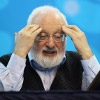 Question: Where is the Creator felt: in the mind, in thoughts, in feelings, or in desires?
Question: Where is the Creator felt: in the mind, in thoughts, in feelings, or in desires?
Answer: It is in the feelings.
Question: Where is the point where I feel that I exist? Is this point also a thought?
Answer: No. Thought is on a much lower level than sensation. Feeling is the innermost point that characterizes a particular desire. The desire to rise above my self and connect with the Creator brings a person to the fact that he begins to feel the Creator’s thought of creation in relation to himself and he connects with Him.
[205867]
From the Kabbalah Lesson in Russian 1/15/17
Related Material:
Thoughts And Mind
Becoming A Part Of The Creator’s Thought
Attaining The Mind Of The Universe
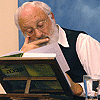 Question from Facebook: What is the connection between the wisdom of Kabbalah and the Torah? After all, Kabbalah is a science about the universe, its origin, general structure, its movement as a whole, and every detail in particular. How can such a grandiose teaching be based on religious stories and parables?
Question from Facebook: What is the connection between the wisdom of Kabbalah and the Torah? After all, Kabbalah is a science about the universe, its origin, general structure, its movement as a whole, and every detail in particular. How can such a grandiose teaching be based on religious stories and parables?
Answer: Indeed, there is no connection between Kabbalah and the ordinary worldly interpretation of the Torah. After all, in truth, Kabbalah is the hidden, secret part of the Torah because a person cannot reveal it through his own qualities.
But when it reveals itself, a person sees that the Torah changes his senses and leads him to the perception of the upper world—the system of governing our world in order to change a human and through him to change our world, and not just to perform some kind of material actions. This is what the Torah speaks about.
The Torah is divided into the internal part (Kabbalah) and the external part, which talks about the fulfillment of some accepted conventions and actions, which is called “practical Judaism.”
[206071]
From KabTV’s “News with Michael Laitman” 3/27/17
Related Material:
Torah And The Wisdom Of Kabbalah
What Came First, The Torah Or The Wisdom Of Kabbalah?
Don’t Play With Fire
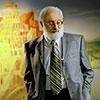 We need to understand what independence means for Israel because it is radically different from what independence is considered to be on other levels: inanimate, vegetative, animate, and even among other nations of the world.
We need to understand what independence means for Israel because it is radically different from what independence is considered to be on other levels: inanimate, vegetative, animate, and even among other nations of the world.
Ultimately, all of humanity must reach independence in the understanding of Israel because this group is carrying out the program of correction for the entire world, as if in the preliminary stage, as if in a laboratory.
Therefore, achieving independence for this group should be viewed as the future state of independence for the entire world. And today it is especially felt how much the world needs this. In order to understand what independence means, first we need to experience what it means to be a slave of our own desire for pleasure.
Little by little, people are becoming aware that our egoistic nature holds us in bondage and mercilessly uses us, preventing us from living or dying.
As pitiful battered creatures, we spend our entire lives simply trying to avoid suffering. Small joys are considered a happy life. That is why we need to understand that independence is primarily independence from our nature, our egoism.
This type of independence has levels. Instead of being under the control of egoism, we need to get under the control of a new power because it is impossible to be without any animating force with which we can control our lives. But we must choose this force ourselves, preferring it over all other possibilities.
So independence has a very broad and exalted meaning, including within itself all of reality. After all, independence is inherent only to the Creator, and if we really want to achieve independence, then we need to rise to His condition, His level, His nature.
This kind of independence is not simple to reach. After all, for this we need to not only cross over into the nature of bestowal, but also build it above our own egoistic nature.
That’s why, if we want to receive our independence, we must be ready for a ceaseless battle with our egoism until the very end of correction. We can only establish our independence in opposition to egoism because one stands opposite the other: independence against slavery.
No matter what state a person experiences, it must be felt as if one is exiting Egypt or standing before the exit. We need to approach this very seriously because if we want to grow spiritually, there will be serious battles ahead of us against the forces of separation, as our egoism is revealed.
These forces will constantly rise and wedge between us in various ways, attempting to create conflict between us. And over all these phenomena, we will need to unite.
Primarily, we need to understand that the only thing preventing our independence is slavery. This is why without first entering Egypt, it is impossible to attain freedom. This dilemma stands before the nation of Israel who will need to demonstrate to all humanity the example of attaining independence, unity, and correction. And after it, all nations will achieve the same.
Therefore, we are not celebrating Independence Day yet, but rather the opportunity to attain it!
[206120]
From the Lesson: “Independence Day,” 4/25/17
Related Material:
Independence Day: How To Be Independent
Independence Day: The Beginning Of The Redemption Of Humanity
Wanting To Be Independent
Listen to an Audio Version of the Blog
Download: MP3 Audio
Shavuot is the giving of the Torah that stretched out over millennia. What actually was given to us at the Mount Sinai? Why do we all the time return to it? How long can we receive the Torah?

Or maybe the Torah describes not this Hollywood picture but something much more serious? The thing that is happening within us today. Maybe the cloud fell on the heart? Maybe it was mountain of hatred, hanging over us in smoke and fire? Maybe passions were thundering and burning within us, making us to shudder to the depth of our nature?
The Torah isn’t a chronicle about past events; on the contrary, it describes the moment when our future is being decided. For the first time a clear answer is required from all of us: Are we ready to accept the mutual guarantee as a law of life? After all, exactly this is the Torah—an instruction on how to become guarantors for each other.
Since then the main lesson is passed from generation to generation: The Torah that was given to us once, we need to receive it again and again. We must receive it at the mountain of hatred (Sina), under the roar of storm raging inside. Accepting this Law we were living together on our land, rejecting it we dispersed among other nations.
The surprising fact in the modern era is that the land of Israel “given” to us, like the Torah, also waits for us to receive it. Since the proclamation of independence almost 70 years have passed. Half a century ago we united Jerusalem. However, this isn’t yet the guarantee, not the nation united “as one man with one heart.” Yes, physically we have “left Egypt,” returned home, but internally we haven’t yet passed through Sinai and therefore we risk losing our chance.
The modern state of Israel is a historical window of opportunities. And most importantly, it is open not only for us, but for the whole world. After all, today the entire humanity turns into a powder keg of passions. And our choice will be decisive for it.
Medication on Demand
Shavuot, like all Jewish holidays carries a call for action. It is bright, it is full of whiteness, but it isn’t simple. If it was enough just to hold hands and smile to each other for a second, we would’ve built here a “garden city” long time ago for everyone to admire.
However, it’s not so. We were given the land and the opportunity to live on it like brothers, and we instead hesitate, squabble, drink each other’s blood and try somehow to solve problems as they come.
Fate presented us with the unique chance for unity, and we even don’t understand what is happening. We bump into each other, people are strangled by indifference, burned with anger, and deafened by cannonade of sectoral enmity, but we pretend that everything is fine, nothing wrong. We can continue living like this. We have such an experience of disasters behind of us that seemingly we can’t complain.
However, this is just a respite! In fact, we are slowly but surely getting pressed to the mountain of our own hatred. We are not looking out of the camp, but this mountain nevertheless is hanging over us right now.
Naturally, when we don’t notice it we don’t need the Torah. Lightning sparkles somewhere, from somewhere we feel heat, heart sometimes rumbles “under the bonnet”, but we are on our land, and not in some desert. Right?
No, we are where our hearts are. We are in the desert of barren and soulless relationships. If we suddenly discover how egoism tears us to pieces, if we try to connect into something integral and face an insuperable internal split then we need help.
It turns out that the «normal» exit from Egypt is not the end. The main challenge is ahead of us. All the ways lead to the mountain. At the foot of it, having finally realized the problem and recognized the disease we understand and take the medicine. It was in this “pharmacy” before, but we didn’t know that we are sick. This is why the giving of the Torah and its reception is not the same thing.
Elixir or Poison?
The Torah is a medicine intended solely for «internal use,” for the connection between us. All our troubles, exiles, destructions of the Temples, wandering and persecutions were caused by the unfounded hatred that made us distant strangers to each other.
The Torah allows us to become close again, “get out from under the fire.” However, if we use it only externally, without striving for unity of all the people “elixir of life” turns into a “deadly poison.”
These are not metaphors at all, but precise terms used by our sages. We don’t even understand the damage we cause to ourselves by not using the Torah or by using it not for the correct purpose. Sometimes we even boast about our “cleanness,” although in reality we are up to the ears in our own dirt. The large sectors in the country exist in the “parallel worlds” almost without touching each other. Some of them live at the expense of the rest of the population and even oppose themselves to it under the pretext of “righteousness.”
Everything that divides us directly or under the cover of beautiful and correct words is a deadly poison. It eats away everyone.
If we raise our eyes from everyday worries, we will see how far we are scattered from each other. We are not just separated, we enjoy pricking, humiliating, and trampling. Each one wants to be more successful, richer, smarter, and higher than others. This is especially evident in the media, where the vices of society are visible as on the palm of a hand. No one is surprised at anything anymore and nobody is ashamed.
It isn’t the most pleasant sight, but everything falls into places: we wander in the desert of human nature and it rises in front of us like a mountain. “And they arrived in the desert of Sinai, and they encamped in the desert, and Israel encamped there opposite the mountain.” (The Torah, Exodus, 19:2)
Now we have the opportunity to receive help, an instruction, a force that will bring us together, so that we will build healthy relations in the society and live happily in our country. This is the current moment of evolutionary development: either we will grow up ourselves and start using the Torah according to its purpose, for the sake of unity above all disagreements, or the adversity of growing up will force us to do this. In essence, this it the situation in which any child finds himself as soon as he stops being an infant.
Remedy for all Times
The best thing we can do for ourselves and for the world is to unite at the mountain of hatred, the mountain of our doubts and reveal Moses within ourselves, the power that pulls (Mosheh) us upward. It always works if we are together.
Then we will understand that not some refugees from Ancient Egypt camped in the desert in order to receive the most important gift in life, but each of us, no matter where he lives, to which nationality belongs, and which religion professes, stands at the foot of the mountain. Here is only one nationality—human, and the heart is one for all.
The Torah, indeed, is the most powerful tool that we still don’t know how to use. A person can’t reach it alone, and we are not ready to do it together. It will provide us with security and prosperity and will give peace to the world. We just need to get used to the fact that it works not in one separate person, but between us.
After all, egoism is revealed exactly in relation to others. Once it burst out in Babylon and since then it always manifests in the society, in the relationship between people.
Therefore, the Torah is aimed to correct connection of the person with the environment at any time and at any level of technical development. It can’t be replaced with the newest means of communication. Everything we have won’t work correctly without it. Only a positive relationship will allow us to lay the solid foundation of our future.
[207562]
Related Material:
The Holiday Of Shavuot
Shavuot: The Festival Of Light In The Israeli Chaos
New Life #733 – The Correction Of The Night Of Shavuot
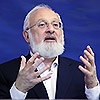 Torah, Deuteronomy 23:07: You shall not ever seek out their welfare or their good, all your days.
Torah, Deuteronomy 23:07: You shall not ever seek out their welfare or their good, all your days.
Egoistic desires, called “Ammonites or Moabites,” reveal on each level of the ladder we ascend. And each time they are new and more powerful .
All the 125 levels are similar to each other; they only differ in power and volume of positive and negative properties, properties of the right and the left line, and the number of details involved. In principle, the power of the level depends on the number of desires and intentions.
When we ascend, our state becomes very integrated and complex, and it is in this complexity, comprising all of its pluses, minuses, all the power of our connection, we find perfection.
It is from the closure of millions of various kinds of forces, intentions, and acts—from the beginning of creation, the middle, and again from the beginning, from the end, etc.—that the perfection of the Creator is attained. Full disclosure of the mechanics of the Creator’s interaction with the desire that He created is the supreme delight of the soul.
About this it is said that “The righteous sit and enjoy the radiance of the Shechina.” After all , the upper Light of wisdom fills the entire creation, shimmers and shines. This attainment comprises the highest meaning and supreme delight the soul feels.
[205680]
From KabTV’s “Secrets of the Eternal Book,” 10/19/16
Related Material:
A Joyous Marathon
Bestowal Is Life, Reception Is Death
Ynet: Time For Acceptance — 10 Myths About Kabbalah
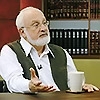 Question: We are living in a very difficult but meaningful period. How can a person who aspires for the Creator look calmly at how the herd is destroyed? After all, he values it, pities it, although he himself becomes part of it. Is the only way to seriously influence the absurd is for a seed to fall on the ground when it is young so that it can sprout?
Question: We are living in a very difficult but meaningful period. How can a person who aspires for the Creator look calmly at how the herd is destroyed? After all, he values it, pities it, although he himself becomes part of it. Is the only way to seriously influence the absurd is for a seed to fall on the ground when it is young so that it can sprout?
Answer: No one does anything independently. It is the upper force that performs everything in order to bring a person to the recognition of the truth and to get closer to it.
Question: Why do people torture each other and behave violently to animals? Why does the Creator allow such behavior? What is the root of this behavior and what solution do you see to this problem as a Kabbalist?
Answer: The entire correction of the world comes down to the correction of man alone, through integral education.
[207503]
Related Material:
Answers To Your Questions, Part 169
Answers To Your Questions, Part 168
Answers To Your Questions, Part 167